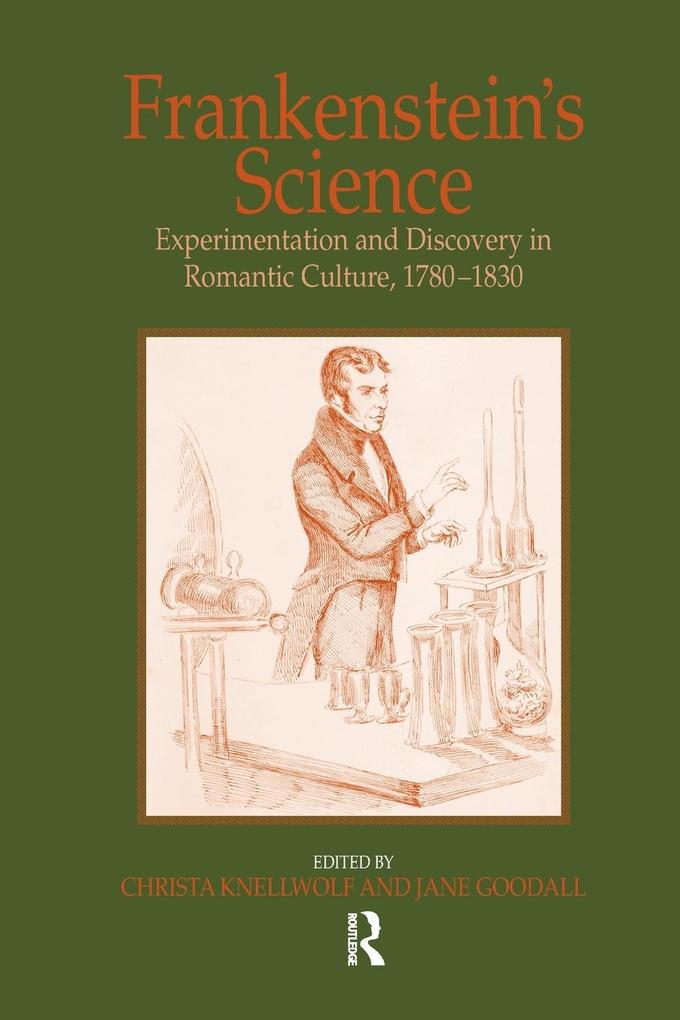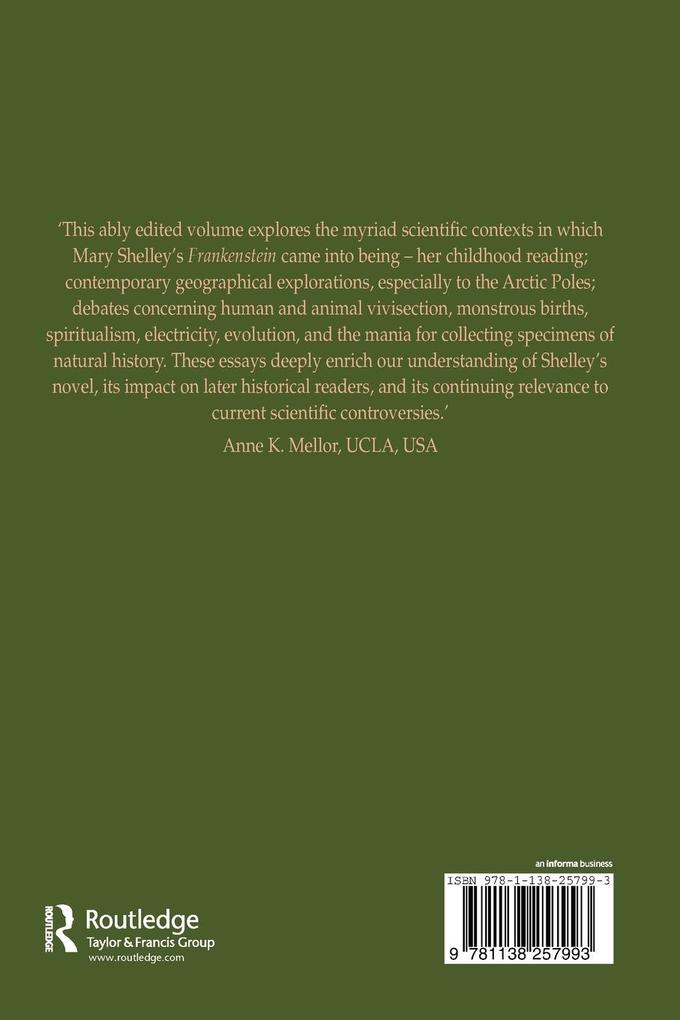Frankenstein's Science contextualizes this widely taught novel in contemporary scientific and literary debates, providing new historical scholarship into areas of science and pseudo-science that generated fierce controversy in Mary Shelley's time: anatomy, electricity, medicine, teratology, Mesmerism, quackery, and proto-evolutionary biology. The collection will be an invaluable resource for students and scholars specializing in Romanticism, cultural history, and the history of science.
Though Mary Shelley's Frankenstein has inspired a vast body of criticism, there are no book-length studies that contextualise this widely taught novel in contemporary scientific and literary debates. The essays in this volume by leading writers in their fields provide new historical scholarship into areas of science and pseudo-science that generated fierce controversy in Mary Shelley's time: anatomy, electricity, medicine, teratology, Mesmerism, quackery and proto-evolutionary biology. The collection embraces a multifaceted view of the exciting cultural climate in Britain and Europe from 1780 to 1830. While Frankenstein is all too often read as a cautionary tale of the inherent dangers of uncontrolled scientific experimentation, the essays here take the reader back to a period when experimenters and radical thinkers viewed science as the harbinger of social innovation that would counter the virulent conservative backlash following the French Revolution. The collection will be an invaluable resource for students and scholars specialising in Romanticism, cultural history, philosophy and the history of science.
Inhaltsverzeichnis
Contents: Introduction, Christa Knellwolf and Jane Goodall; Educating Mary: women and scientific literature in the early 19th century, Patricia Fara; The professor and the orang-outang: Mary Shelley as a child reader, Judith Barbour; Geographic boundaries and inner space: Frankenstein, scientific explorations and the quest for the absolute, Christa Knellwolf; Animal experiments and anti-vivisection debates in the 1820s, Anita Guerrini; Monstrous progeny: the teratological tradition in science and literature, Melinda Cooper; Shadows of the invisible world: Mesmer, Swedenborg and the spiritualist sciences, Joan Kirkby; Electrical romanticism, Jane Goodall; Evolution, revolution and Frankenstein's creature, Allan K. Hunter; Science as spectacle: electrical showmanship in the English Enlightenment, Ian Jackson; Collectors of nature's curiosities: science, popular culture and the rise of natural history museums, Christine Cheater; The nightmare of evolution: H.G. Wells, Percival Lowell and the legacies of Frankenstein's science, Robert Markley; Bibliography; Index.













